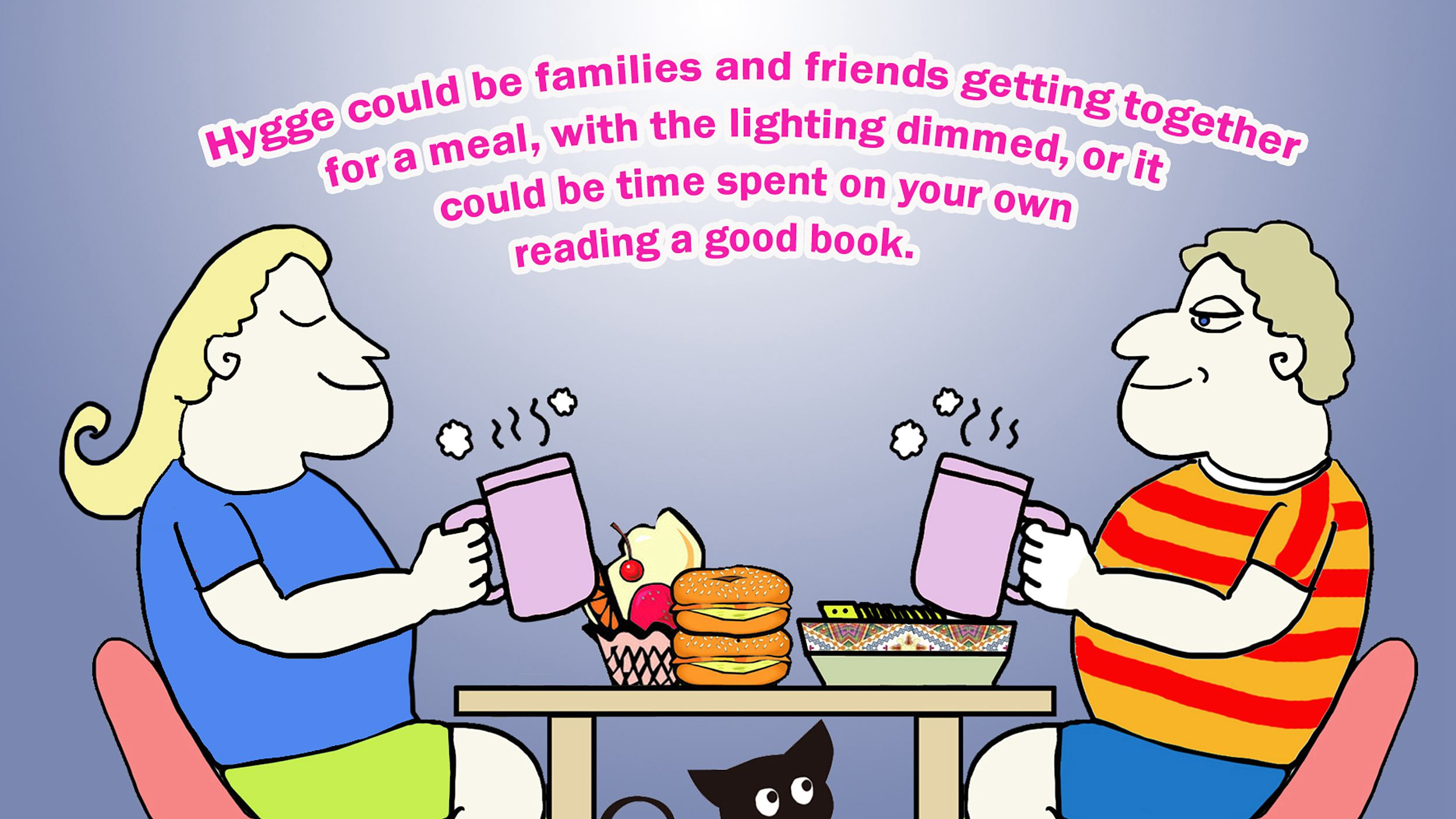
Opinions
21:06, 25-Dec-2018
'Hygge': The Danish secret to achieving happiness
Updated
20:15, 28-Dec-2018
CGTN’s The Point

The winter cold has arrived, but the Danish concept of “hygge” is heating up the hearts and minds of communities near and far from the Scandinavian country. The pursuit of a life with “hygge” has made Denmark one of the happiest countries in the world.
According to the 2018 World Happiness Report, released by the Sustainable Development Solutions Network (SDSN) for the United Nations in March this year, Denmark ranks the third happiest country, behind its Scandinavian neighbors, Finland and Norway.
But what exactly is “hygge”? It roughly translates to a quality of coziness and comfort that promises warmth, safety, and community. Regarded as a defining characteristic of Danish culture, “hygge” has quickly become a global sensation, partly because of the bestselling book, "The Little Book of Hygge: The Danish Way to Live Well."
“I think the best short definition of ‘hygge' is the art of creating a nice atmosphere,” said Meik Wiking, the author of this international bestseller. “It is these moments when we experience comfort, togetherness, relaxation, harmony… of course, it happens everywhere.”
Wiking believes the secret behind the success of his book is that it gives a name to that universal feeling. However, the more important reason is, as he put it, “A lot of societies have become richer without necessarily people becoming happier.”
01:15

“I think we need to look at happiness from a broader point of view than physical stuff. I think we need to look at happiness the same way we look at health,” Wiking added.
He listed three aspects that influence people's sense of happiness: “genetics” or what we are born with; “environment” meaning where we live and the cities we live in, as well as the pressures we need to deal with from the outside; and our “habits” in life that influence our health, including the choices we make.
He also stressed the importance of community when it comes to helping people feel more connected.
“For instance, when people move into bigger cities, they can become less happy. In part, that may have to do with a higher level of loneliness in bigger cities. What also happens sometimes when people move to bigger cities to seek opportunities, to seek jobs, is that their expectations change,” Wiking said.
00:48

“What we can see when it comes to money and happiness, the relation there is, what seems to matter to people is their relative income,” he explained.
For the question of how to be happier on a personal level, Wiking offered that “people need to figure out how to bring that community feeling we experience in small towns into the bigger city," he added.
(If you want to contribute and have specific expertise, please contact us at opinions@cgtn.com.)

SITEMAP
Copyright © 2018 CGTN. Beijing ICP prepared NO.16065310-3
Copyright © 2018 CGTN. Beijing ICP prepared NO.16065310-3